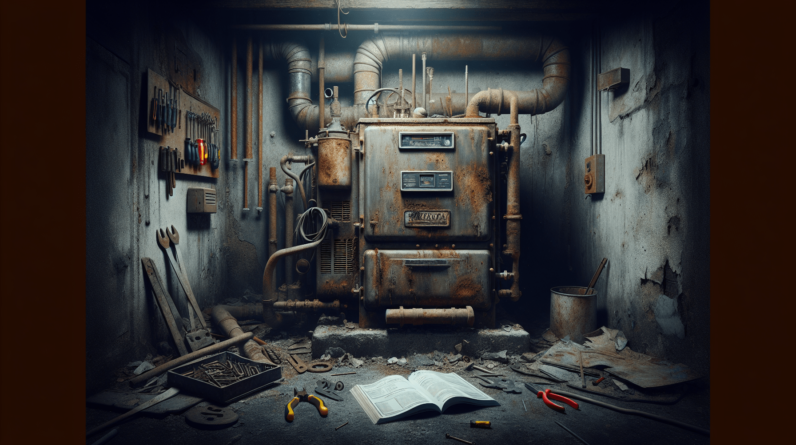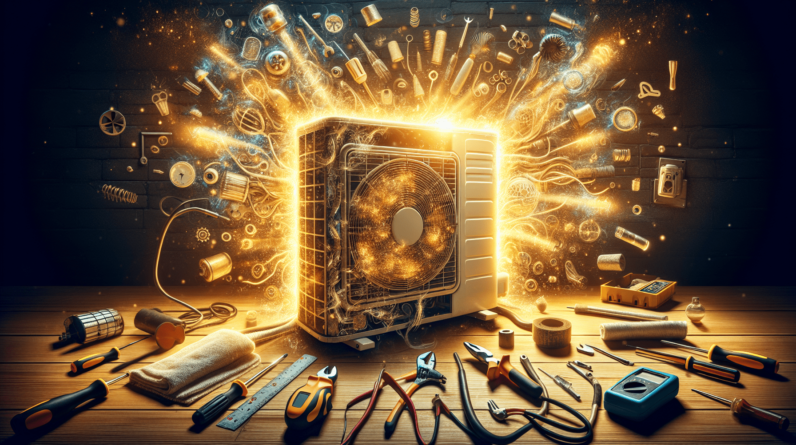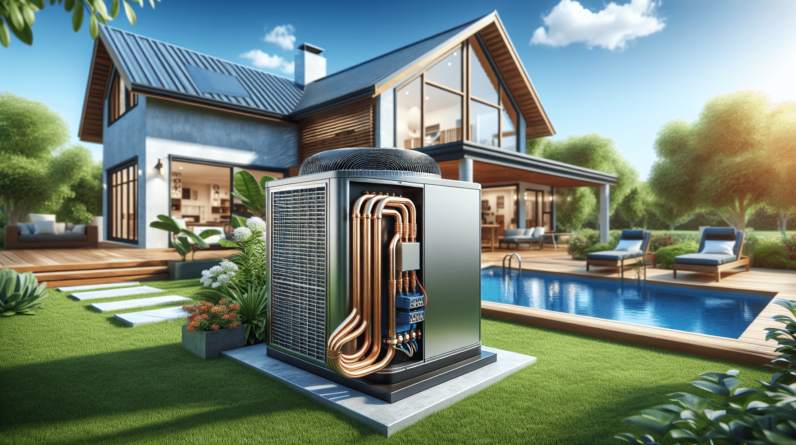
Ah, cold weather – it’s that time of the year when we break out our cozy sweaters and sip our hot beverages by the fire. But have you ever wondered if your HVAC system shares your love for the chilly temperatures? It’s a valid question. After all, we rely on our HVAC systems to keep us warm and comfortable year-round. So, in this article, we’ll explore the impact of cold weather on our trusty heating and cooling systems. Let’s dive in and find out if your HVAC can battle the frosty winds or if it prefers to hibernate until spring.
Does Cold Weather Affect HVAC?
Defining HVAC
Before delving into the impact of cold weather on HVAC systems, it’s important to understand what HVAC actually stands for. HVAC stands for Heating, Ventilation, and Air Conditioning. It refers to the technology used for indoor and vehicular environmental comfort. The purpose of HVAC systems is to provide thermal comfort and acceptable indoor air quality. These systems are responsible for regulating temperature, humidity, and air quality in buildings and homes.
Understanding the Impact of Cold Weather on HVAC
Cold weather can have a significant impact on HVAC systems. When temperatures drop, HVAC systems may struggle to maintain desired indoor temperatures and operate efficiently. This can result in increased energy consumption, reduced efficiency, and potential damage to various components of the system. It is important to understand how cold weather affects HVAC systems to take appropriate measures to protect them.
Effects of Cold Weather on HVAC System
Reduced Efficiency and Increased Energy Consumption
Cold weather can negatively impact the efficiency of HVAC systems. In order to maintain a comfortable indoor temperature, the system has to work harder and longer, resulting in increased energy consumption. The colder the temperature, the more the HVAC system has to compensate by using more power to heat the air. This not only leads to higher utility bills but also puts a strain on the system, potentially shortening its lifespan.
Frozen Pipes
One of the most common problems during cold weather is the freezing of pipes connected to the HVAC system. As the temperature drops below freezing point, the water within the pipes can freeze and expand, leading to cracks or even bursting of the pipes. This can cause water damage and result in costly repairs or replacements. It is crucial to take preventive measures to protect pipes from freezing, such as proper insulation and regular maintenance.
Overworked Components
When the temperature drops, the HVAC system’s components such as the compressor, condenser, and fan have to work harder to generate and distribute heat. The constant strain on these components can lead to premature wear and tear, increase the risk of breakdowns, and require costly repairs. Regular maintenance and timely inspections can help identify any issues before they become major problems, allowing for prompt repairs to keep the system running smoothly.
Poor Indoor Air Quality
During cold weather, people tend to keep their windows and doors closed to retain heat. This lack of ventilation can result in poor indoor air quality. Without proper ventilation, indoor pollutants such as dust, allergens, and volatile organic compounds (VOCs) can accumulate, leading to respiratory problems, allergies, and discomfort. It is important to ensure that HVAC systems are properly maintained and equipped with appropriate air filtration to maintain good indoor air quality.

Tips to Protect HVAC System in Cold Weather
Invest in Proper Insulation
Proper insulation is crucial to protect the HVAC system from the effects of cold weather. Insulating the walls, floors, and attic can help prevent heat loss and maintain indoor temperatures more effectively. Additionally, insulating pipes can prevent them from freezing and causing damage. By investing in good insulation, you can reduce energy consumption, improve the efficiency of your HVAC system, and save on heating costs.
Schedule Regular Maintenance
Regular maintenance is vital for the optimal functioning of HVAC systems, especially during cold weather. Have a professional technician inspect and tune-up your HVAC system before the colder months to ensure it is working efficiently. This includes cleaning or replacing air filters, checking and lubricating parts, and inspecting electrical connections. Timely maintenance can help identify and address any issues before they escalate, improving the performance and longevity of your HVAC system.
Clear Snow and Ice from Outdoor Units
If you have an outdoor unit for your HVAC system, it is important to regularly clear snow and ice buildup from around it. Snow and ice can restrict airflow, hamper system efficiency, and cause damage to the unit. Use a broom or a gentle stream of water to remove accumulated snow and ice. However, exercise caution and avoid using sharp objects or excessive force, as they can damage the unit. Keeping the outdoor unit clear can help your HVAC system operate efficiently and prevent unnecessary strain on its components.
Maintain Indoor Temperatures
Maintaining consistent indoor temperatures can help alleviate the strain on your HVAC system during cold weather. While it may be tempting to crank up the heat when it gets cold outside, it is more efficient and less stressful for the system to maintain a slightly lower but comfortable temperature. Consider wearing warm clothing and using blankets to stay cozy, and avoid sudden temperature fluctuations. This can help reduce energy consumption and prolong the life of your HVAC system.
Consider the Use of a Programmable Thermostat
Investing in a programmable thermostat can greatly benefit your HVAC system during cold weather. Programmable thermostats allow you to set different temperatures for different times of the day, automatically adjusting the temperature according to your schedule. This can help optimize energy usage, preventing unnecessary heating when you are not at home or during the night. By efficiently controlling the temperature, you can reduce energy consumption and lower your heating costs.
Common Issues in HVAC System during Cold Weather
Thermostat Malfunction
One common issue during cold weather is thermostat malfunctioning. Faulty thermostats can cause inaccuracies in temperature readings, leading to inconsistent heating or cooling. It is important to regularly test and calibrate your thermostat to ensure it is functioning properly. If you notice any irregularities, it may be necessary to replace or repair the thermostat to maintain proper temperature control.
Fluctuating Temperatures
Cold weather can cause fluctuations in indoor temperatures if the HVAC system is not functioning optimally. Inefficient heating or cooling can result in uneven heating throughout the building or home. This can make some areas colder than others, leading to discomfort. Regular maintenance and inspections can help identify and address any issues that may cause temperature fluctuations, ensuring consistent comfort throughout the space.
Air Flow Problems
Cold weather can exacerbate existing air flow problems within the HVAC system. Blockages or restrictions in the ductwork can impede the flow of air, preventing efficient heating or cooling. This can result in areas of the building or home that are not adequately heated, while others may become overly warm. Regularly inspecting and cleaning the ductwork, and addressing any obstructions, can ensure proper air flow and improve the overall performance of the HVAC system.
Leaking Ducts
During cold weather, leaking ducts can be a common problem that affects HVAC system efficiency. Leaky ductwork allows heated air to escape, wasting energy and making it harder for the system to maintain desired temperatures. Regular inspections and sealing of any leaks can help improve the efficiency of the HVAC system, reduce energy consumption, and ensure consistent indoor temperatures.
Preventive Measures for Cold Weather HVAC Problems
Inspect and Seal Ductwork
Regularly inspecting and sealing ductwork is crucial to prevent cold weather-related problems in HVAC systems. Inspect the ductwork for any signs of leaks, cracks, or damage and seal them promptly. This will help maintain the efficiency of your HVAC system, prevent energy loss, and ensure consistent indoor temperatures.
Upgrade to Energy-Efficient Equipment
Consider upgrading to energy-efficient HVAC equipment if your current system is outdated or inefficient. Newer systems are designed to be more energy-efficient, reducing your heating costs and minimizing the impact of cold weather on your HVAC system. Energy-efficient equipment uses less energy to generate the same amount of heat, resulting in lower energy consumption and reduced strain on the system.
Ensure Proper Air Filtration
Proper air filtration is essential for maintaining good indoor air quality and protecting your HVAC system during cold weather. Clean or replace air filters regularly to prevent the buildup of dust, pollen, and other airborne particles that can impact the system’s performance. Consider using high-quality air filters that can capture a wide range of pollutants, helping to keep the air clean and the system running smoothly.
Benefits of Maintaining HVAC System in Cold Weather
Lower Energy Costs
By properly maintaining your HVAC system during cold weather, you can experience lower energy costs. When the system is operating efficiently, it consumes less energy to heat the space, resulting in reduced utility bills. Regular maintenance, insulation, and upgrading to energy-efficient equipment can all contribute to lowering energy costs and saving money in the long run.
Extended Lifespan
Taking care of your HVAC system during cold weather can also extend its lifespan. Regular maintenance and prompt repairs help identify and address any issues before they worsen, preventing premature breakdowns and minimizing the need for costly replacements. By ensuring that your system is well-maintained and protected from the effects of cold weather, you can enjoy longer-lasting performance.
Improved Indoor Comfort
Maintaining your HVAC system in cold weather leads to improved indoor comfort. When the system operates efficiently, it can maintain consistent temperatures throughout the building or home, ensuring a comfortable environment. Additionally, proper air filtration and ventilation help maintain good indoor air quality, reducing the risk of allergies, respiratory problems, and discomfort. By prioritizing the maintenance of your HVAC system, you can enjoy enhanced indoor comfort during cold weather.
Conclusion
Cold weather can undoubtedly impact HVAC systems, causing reduced efficiency, frozen pipes, overworked components, and poor indoor air quality. However, by implementing preventive measures such as insulation, regular maintenance, clearing snow and ice from outdoor units, and maintaining consistent indoor temperatures, you can protect your HVAC system and mitigate any potential issues. Upgrading to energy-efficient equipment, inspecting and sealing ductwork, and ensuring proper air filtration further enhance the performance and longevity of your HVAC system. By maintaining your HVAC system during cold weather, you can enjoy lower energy costs, an extended lifespan for your system, and improved indoor comfort. Take these steps to ensure that your HVAC system is ready to face the challenges of cold weather and keep you comfortable all season long.








